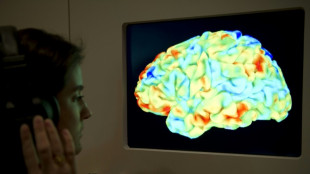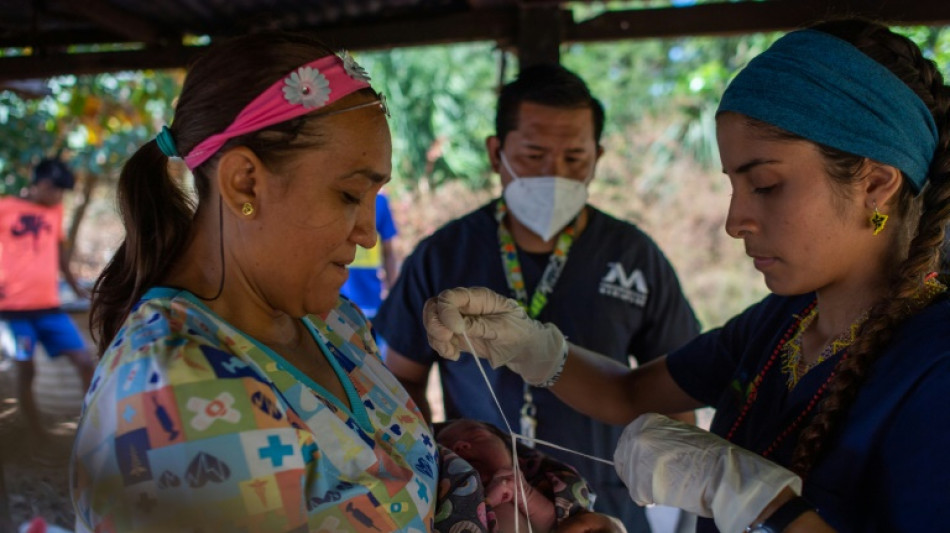
-
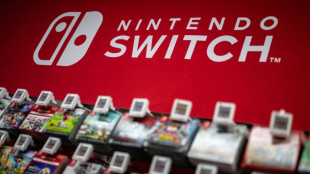 Nintendo to unveil upgrade to best-selling Switch console
Nintendo to unveil upgrade to best-selling Switch console
-
Oil, sand and speed: Saudi gearheads take on towering dunes

-
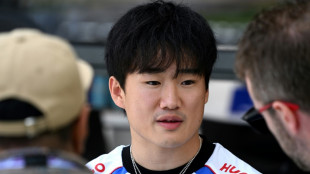 All eyes on Tsunoda at Japan GP after ruthless Red Bull move
All eyes on Tsunoda at Japan GP after ruthless Red Bull move
-
'Image whisperers' bring vision to the blind at Red Cross museum
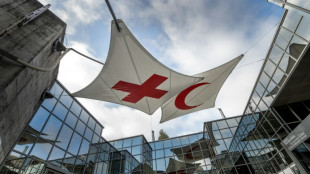
-
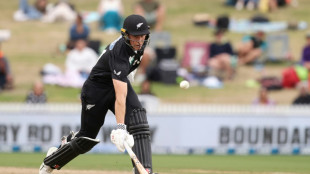 Hay shines as New Zealand make 292-8 in Pakistan ODI
Hay shines as New Zealand make 292-8 in Pakistan ODI
-
Other governments 'weaponising' Trump language to attack NGOs: rights groups
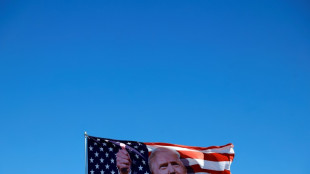
-
 UK imposes online entry permit on European visitors
UK imposes online entry permit on European visitors
-
How a Brazilian chief is staving off Amazon destruction
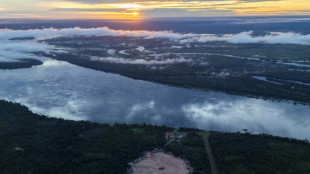
-
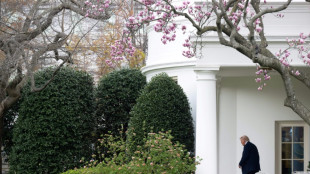 Meme politics: White House embraces aggressive alt-right online culture
Meme politics: White House embraces aggressive alt-right online culture
-
China launches military drills in Taiwan Strait
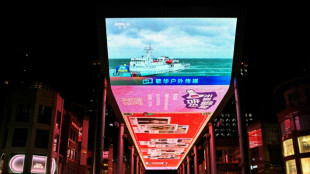
-
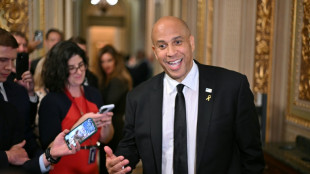 US senator smashes record with 25-hour anti-Trump speech
US senator smashes record with 25-hour anti-Trump speech
-
Brazil binman finds newborn baby on garbage route
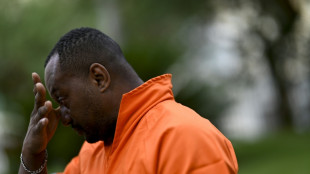
-
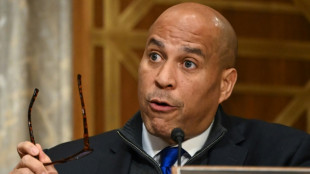 US senator smashes record with marathon anti-Trump speech
US senator smashes record with marathon anti-Trump speech
-
Trump advisor Waltz faces new pressure over Gmail usage
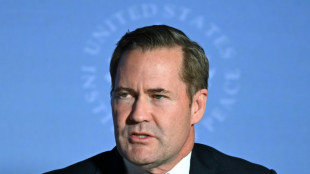
-
 Niger junta frees ministers of overthrown government
Niger junta frees ministers of overthrown government
-
Trump set to unleash 'Liberation Day' tariffs
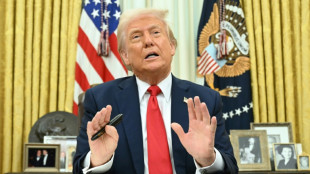
-
 Boeing chief to acknowledge 'serious missteps' at US Senate hearing
Boeing chief to acknowledge 'serious missteps' at US Senate hearing
-
Real Madrid hold Real Sociedad in eight-goal thriller to reach Copa del Rey final

-
 Nuno salutes 'special' Elanga after stunning strike fires Forest
Nuno salutes 'special' Elanga after stunning strike fires Forest
-
PSG survive scare against Dunkerque to reach French Cup final

-
 Sundowns edge Esperance as crowd violence mars quarter-final
Sundowns edge Esperance as crowd violence mars quarter-final
-
Nottingham Forest beat Man Utd, Saka scores on Arsenal return

-
 Elanga wonder-goal sinks Man Utd as Forest eye Champions League berth
Elanga wonder-goal sinks Man Utd as Forest eye Champions League berth
-
Stock markets mostly advance ahead of Trump tariffs deadline

-
 US movie theaters urge 45-day 'baseline' before films hit streaming
US movie theaters urge 45-day 'baseline' before films hit streaming
-
Saka scores on return as Arsenal beat Fulham

-
 Third-division Bielefeld shock holders Leverkusen in German Cup
Third-division Bielefeld shock holders Leverkusen in German Cup
-
Ball-blasting 'Torpedo bats' making waves across MLB opening weekend

-
 Newsmax shares surge more than 2,000% in days after IPO
Newsmax shares surge more than 2,000% in days after IPO
-
Thousands of Hungarians protest against Pride ban law

-
 GM leads first quarter US auto sales as tariffs loom
GM leads first quarter US auto sales as tariffs loom
-
Tesla sales tumble in Europe in the first quarter

-
 No 'eye for an eye' approach to US tariffs: Mexico
No 'eye for an eye' approach to US tariffs: Mexico
-
NFL club owners back dynamic kickoffs, delay tush push vote

-
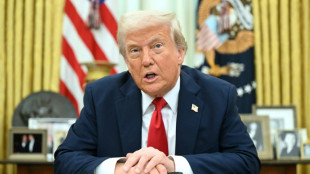 Trump 'perfecting' new tariffs as nervous world braces
Trump 'perfecting' new tariffs as nervous world braces
-
Trump nominee says to press UK on Israel arms
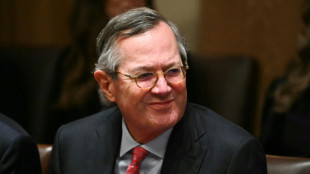
-
 French court says Le Pen appeal ruling could come before presidential vote
French court says Le Pen appeal ruling could come before presidential vote
-
The battle to control assets behind Bosnia crisis

-
 Prabhsimran powers Punjab to IPL win over Lucknow
Prabhsimran powers Punjab to IPL win over Lucknow
-
Mass layoffs targeting 10,000 jobs hit US health agencies

-
 Tiger's April Foolishness: plan to play Masters just a joke
Tiger's April Foolishness: plan to play Masters just a joke
-
Myanmar quake toll passes 2,700, nation halts to honour victims

-
 Turkish fans, artists urge Muse to cancel Istanbul gig
Turkish fans, artists urge Muse to cancel Istanbul gig
-
US seeks death penalty for accused killer of insurance CEO

-
 UK govt moves to block sentencing guidelines for minority defendants
UK govt moves to block sentencing guidelines for minority defendants
-
Trump puts world on edge as 'Liberation Day' tariffs loom
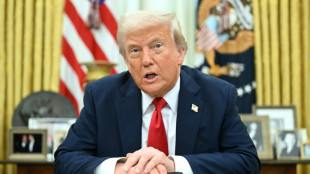
-
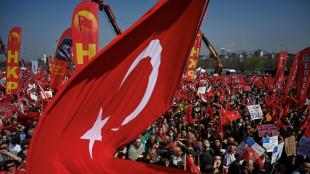 Swedish journalist jailed in Turkey kept 'isolated': employer
Swedish journalist jailed in Turkey kept 'isolated': employer
-
Stock markets advance ahead of Trump tariffs deadline

-
 Gulf between Everton and Liverpool has never been bigger, says Moyes
Gulf between Everton and Liverpool has never been bigger, says Moyes
-
Finland to withdraw from anti-personnel mine ban treaty
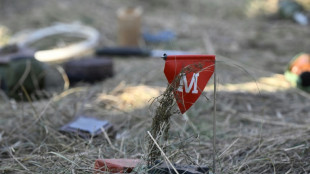

Performing medical miracles in impoverished Venezuela
Venezuelan indigenous teenager Lidiana Requena lies on an old, dirty hammock under an awning, her sunken eyes gazing at her newborn baby in the arms of the village nurse.
Unable to reach a rural medical center miles away from the Amazonian village of Chaviripa in Venezuela's southwestern Bolivar state in time, she gave birth on the ground.
The 270 Chaviripa villagers -- including 180 members of the Enepa ethnicity -- live in extreme poverty, marked by a severe lack of medical facilities.
Nurse Carmen Olivo, 40, is used to making do with limited resources and has delivered dozens of babies.
"I barely have a pair of gloves. I don't even have a pair of scissors, I cut the (umbilical) cord with a knife," she said.
"Both the mother and baby could get infected. These aren't the conditions to give birth... There's nothing hygienic, there's no clean water, there's nothing," she added.
"These people are far from everything. They don't even have the resources to leave."
- 'Not a hospital' -
When Requena's contractions began at dawn, Olivo had sent word for a car to take her the nine miles (15 kilometers) to a Maniapure Foundation center that provides health services to rural communities.
But with no telephone or radio in Chaviripa, Olivo had to send a messenger to ask for the car -- which didn't arrive until after the birth.
At the La Milagrosa donation-funded center, Requena was examined by Natalia Vivas, a 24-year-old medical intern studying at the Central University in Caracas.
Speaking to her patient in a mixture of Spanish and the Enepa language, Vivas stitched up the tears caused by the birth.
"It is important to communicate, to tell them it is going to hurt a bit. The women often don't speak Spanish," she said.
Renowned cardiologist Dr. Tomas Sanabria co-founded the foundation with a Swiss-Venezuelan couple 25 years ago.
He said La Milagrosa now "attends to the largest number of patients in the area, but it is not a hospital."
The 74-year-old started coming to the region to camp in the 1960s as student.
"From the first visits we realized the Enepa and Creoles had many needs. They asked us for consultations."
In 1995, he secured funding from an NGO to install a doctor in the area.
"A salary for a rural doctor, a car to move around, a radio. That's all I asked for," he said.
"From the start we understood the importance of being able to communicate: telemedicine."
From only a radio to internet today, Sanabria said medical workers can resolve 90 to 95 percent of issues without a face-to-face visit.
"It is healthcare for everyone at minimal cost."
Once a year the foundation arranges for a group of around 30 specialists to visit the area.
They treat up to 1,800 patients in a matter of days.
- Symbolic contribution -
Every day, 50 to 100 patients visit the center. Some walk hours to get there.
Cristobal Quilelli cycled three hours with his wife and four-year-old daughter -- who was suffering from a fever and cough -- perched on his bicycle.
Occasionally a bus full of people arrives after an hours-long journey.
Domingo Antonio, 69, and Felix Gutierrez, 73, traveled the day before and slept at the center overnight to consult a doctor the next morning.
One had kidney, heart and prostate problems, the other was suffering from joint pains.
At the center's pharmacy, Alvaro Leal gave them free medicines.
"We ask for a symbolic contribution for each consultancy but we don't turn anyone away," said Leal.
France, one of the center's main benefactors, donates 600,000 euros ($674,000) a year to help protect "indigenous populations."
"We have to protect their languages, their customs and... their health," said French ambassador Romain Nadal.
Around 32 percent of patients at the La Milagrosa center are indigenous, said Sanabria.
Over time, the foundation has extended its reach beyond the center, providing medicines, medical supplies, training and internet access to rural pharmacies.
"Here, I cried, I suffered," said Marlene Campos, a nurse in La Urbana, a village on the shores of the Orinoco river.
Thanks to the foundation she can now treat many patients she used to send to a hospital several hours drive away.
"When I arrived, I wanted to leave. Now I feel useful, I've asked to stay another year."
D.Moore--AMWN
